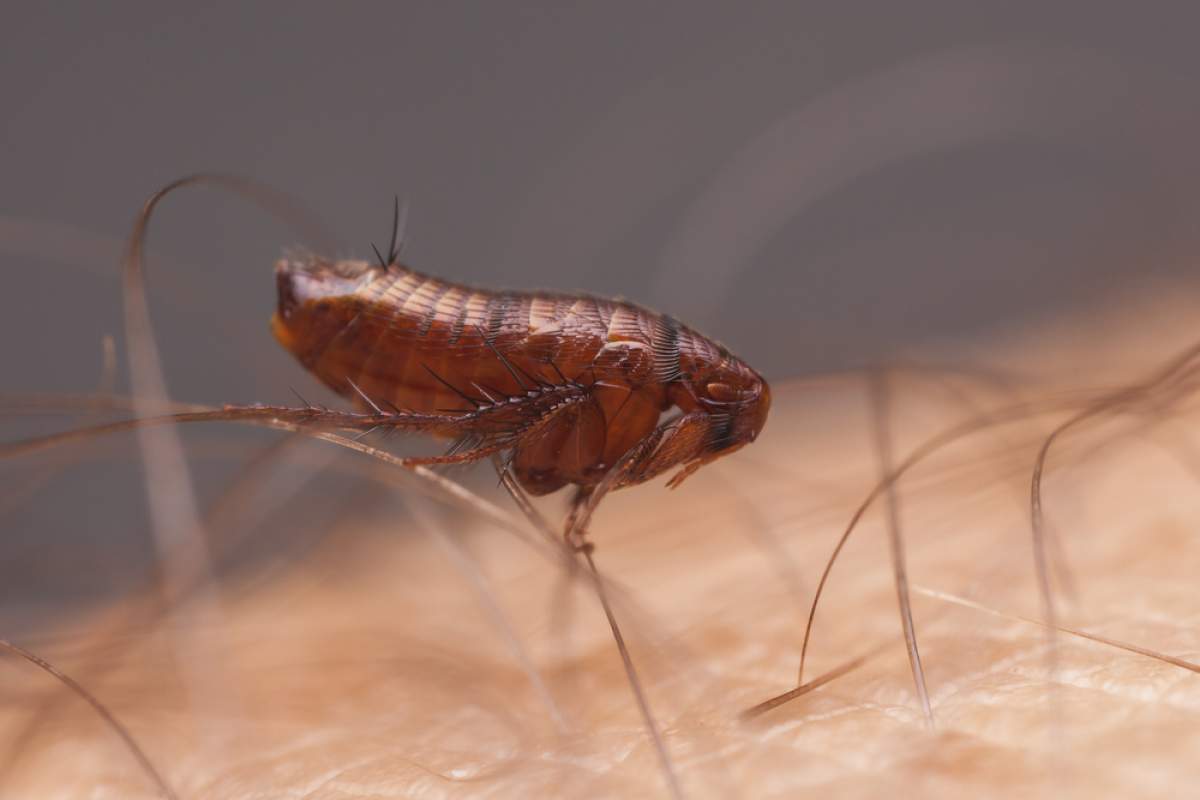Advice for Controlling Fleas
Finding out that your pets or property has fleas can be distressing. If your feline friend can’t sit still or your dog is constantly scratching, then there is a high chance that fleas may be the cause. You may even spot the odd flea on yourself. However, it’s very rare to find individual fleas, so if you see one, then it may point to a more serious infestation. In this post, we’ll be looking at fleas in more detail, explain why they’re an issue and provide advice for controlling fleas, whether that be a DIY solution or calling in the professionals.
What Are Fleas
Fleas are part of a group known as ectoparasitic insects. This group of insect live on the outside of a host mammal or bird and feed on their blood. There are thought to be approximately 2,500 species of flea. However, only three are common to the UK.
What Risks do Fleas Pose to Humans
In the UK, fleas do not pose a direct health risk to humans and don’t spread disease. However, flea bites can be extremely irritating and can become infected. Flea bites have also been known to cause or exacerbate skin complaints and are also linked to respiratory illnesses.
What Risks do Fleas Pose to Animals
Similar to humans, the most common reaction is irritation and discomfort. If an animal suffers from a prolonged infestation, they can develop anaemia caused by blood loss. In rare cases, some animals are allergic to the flea’s saliva.
Where Do Fleas Live
Fleas aren’t fussy when it comes to finding a host and can live on any warm-blooded animal or bird. Around the home, when fleas aren’t feeding, they will head to busy areas of the home such as the lounge or bedrooms. Fleas, along with their eggs, will be found in soft furnishings, carpets, pet bedding or humans beds.
Flea eggs can remain dormant for up to 18 months and will only hatch when a food source is available. If you’ve recently moved into a new home, it’s possible that you’ve move into an infestation without even knowing it.
Common Signs of an Infestation
If you think you have a flea infestation there are some common signs to look out for.
- If you have pets then you should quickly see a change in their behaviour. Increased scratching, biting or licking or themselves are common as are sudden jumps as they try and get away from a bite.
- It’s not uncommon to see fleas if you have an infestation. You may see them on yourself or your soft furnishings.
On humans flea bites are often found on the feet and ankles. You may also get bites on your arms after handling or stroking an infected pet. - If you suspect your pet has fleas the comb their fur backwards. This should quickly expose any fleas or their eggs. If you have a dark coloured pet, then brush them over some white paper and see what drops out.
How To Prevent Fleas
As with many pests it’s virtually impossible to totally protect yourself. However, there are steps you can take to reduce the odds of a flea infestation.
- If you have pets ensure they receive regular flea treatments. Speak to your vet about the most suitable products for your animals.
- One of the most common ways that fleas enter a property is by hitching a ride on your pet pooch when you’re on a walk. Get into the habit of giving your dog a quick brush down every time you come back from a walk.
- Regular vacuuming of carpets and soft furnishings will reduce the chances of an infestation taking hold. If you have pets, focus on the areas of the home where they spend the most time.
- Wash your pets bedding on a frequent basis.
Advice for Controlling Fleas
DIY Solutions
There are several products on the market designed to tackle a flea infestation. Generally, they will target the adult fleas, and in some cases they can be very effective. However, a flea infestation is a bit like an iceberg. The adult fleas are the tip of the iceberg that you can see, but the eggs are the real issue that is hidden below the surface, and these need to tackled to ensure an effective treatment.
If you do want to tackle the issue yourself then vacuuming is your biggest weapon. You will need to vacuum frequently, ensure all bedding and soft furnishings are cleaned and treat any pets with an appropriate flea product.
Professional Help
A flea infestation in your home may seem like a huge issue, but for a professional pest control expert it’s something they deal with regularly.
Pest control companies have specialist equipment and licenced products that deal with the whole flea problem, not just the adults. Typically they will use a combination of Residual Insecticide and a Growth Regulator. The insecticide kills the adult fleas but importantly remains active, so newly hatching fleas are killed immediately. The Growth Regulator interrupts the life cycle of the flea larvae, preventing them from maturing.
In Summary
Fleas are a common issue that affects all types of people and properties. The myth of fleas only being attracted to dirty places is just that, a myth. Fleas want a warm-blooded creature to feed on and don’t care if the environment is clean or dirty.
We hope our advice for controlling fleas that we’ve provided in this post has been useful. If you live in the Nottingham area and think you have a flea problem then please get in touch. Confirm A Kill have over 25 years of experience in dealing with all manner of pests, including flea control.

